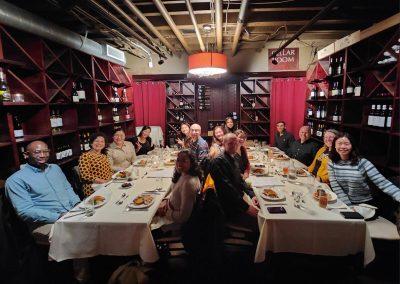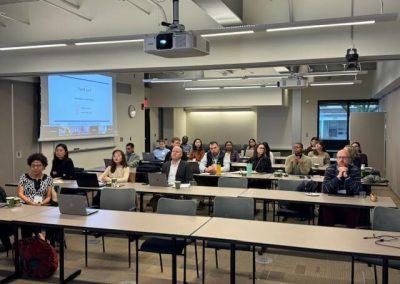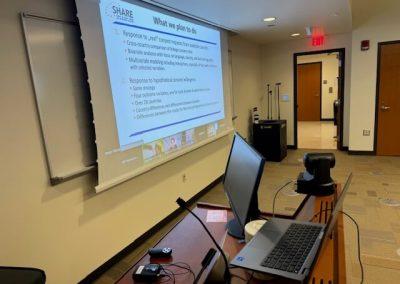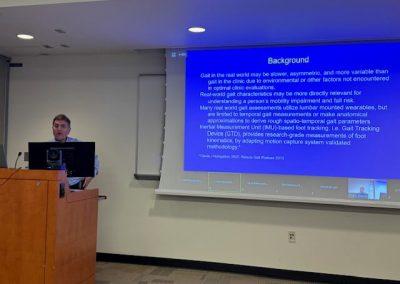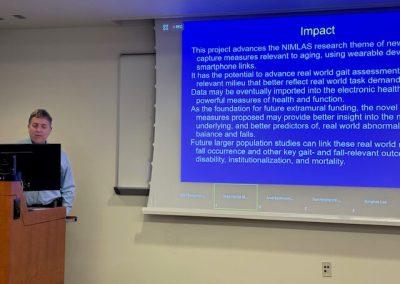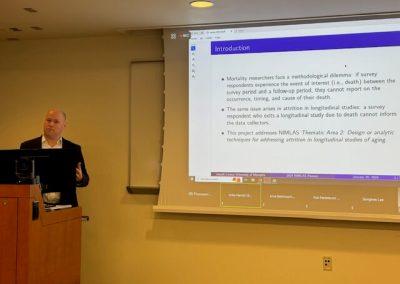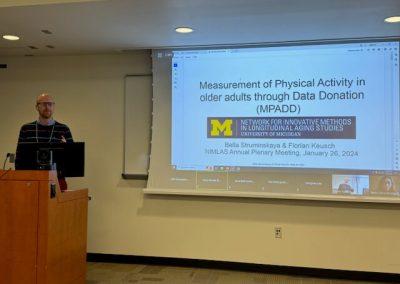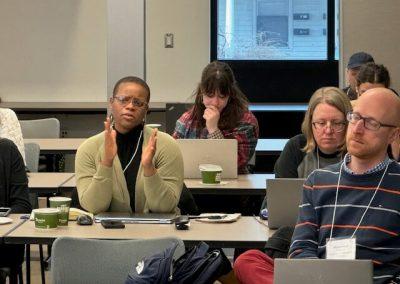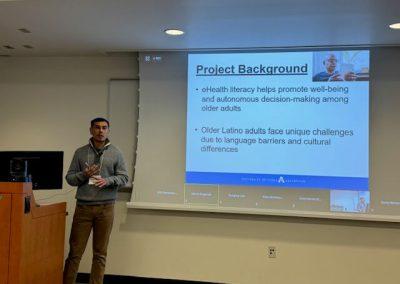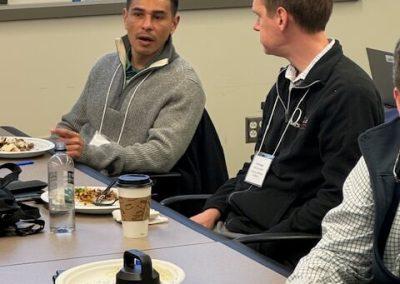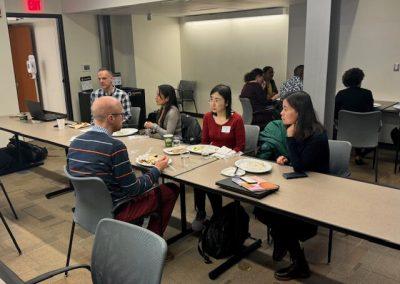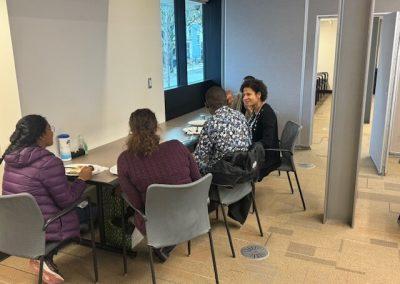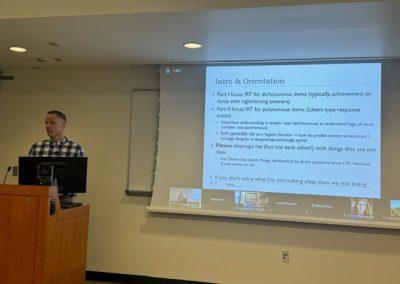Annual Plenary Meeting
The second annual NIMLAS plenary meeting was held on Friday, January 26, 2024 and attended by close to 60 members in a hybrid format.
The meeting started with a review of NIMLAS activities in the past year, followed by updates from our 2022 pilot project award winners and project summaries from our 2023 pilot project award winners. This was followed by reports from working groups and a summary of upcoming activities.
The afternoon was devoted to a workshop titled “Using Item Response Theory (IRT) Methods to Refine Measurement & Reduce Participant Burden in Aging Research,” by Dr. Matthew Diemer from the University of Michigan.
January 25
6:00pm: Pre-Plenary Dinner and Drinks, Vinology, Ann Arbor, MI
January 26
8:30am: Continental Breakfast for In-Person Attendees
9:00am: Welcome and Introductions / Reminders about NIMLAS services (Sunghee Lee and Brady West)
9:10am: Announcement of newly awarded pilot projects and brief presentations from new awardees (with time for questions / discussion)
10:00am: Updates from the four 2022 pilot projects (10 minutes each, with 5 minutes for discussion; presentations of formal results and findings to date)
* Colleen Peterson (PDF)
* Michal Engelman (PDF)
* Christian Vazquez (PDF)
11:00am: 15-minute Break
11:15am: Working Group Updates / Future Research Agendas (suggestions of new papers, important directions for future work, potential collaborations, etc.)
- Plenary Morning Session (YouTube)
12:00pm: Lunch for in-person attendees
1:00pm: Introduction of Matthew Diemer and IRT workshop
- Workshop video recording (YouTube)
- Workshop slides and other materials (PowerPoint)
1:05pm-2:30pm: Workshop
- A graphical approach to IRT
- Briefly: IRT with dichotomous (correct vs incorrect) response options
- IRT parameters: a, b, c
- Overview of IRT models: 1PL (including the Rasch model), 2PL
- Item information curves (IICs), test information curves (TICs), item characteristic curves (ICCs) and test characteristic curves (TCCs)
- Empirical example: Dichotomous response options
2:30pm: 15-minute Break 2:45pm-4:00pm: Workshop
- IRT with polytomous (Likert-type, or strongly disagree-strongly agree) response options
- Unique capacity of IRT to identify low-information, redundant and imprecise items
- Streamlining measures to improve measurement precision and data quality
- Empirical example: Polytomous response options
4:00pm: 15-minute Break 4:15-5:00pm: Conclude Workshop
- How shorter measures can increase retention & reduce attrition, time and cost
- Review and Integration: Advantages of IRT for Aging Research
5:00pm: Final Comments
